‘Project Merciless’: how Qatar spied on the world of football in Switzerland
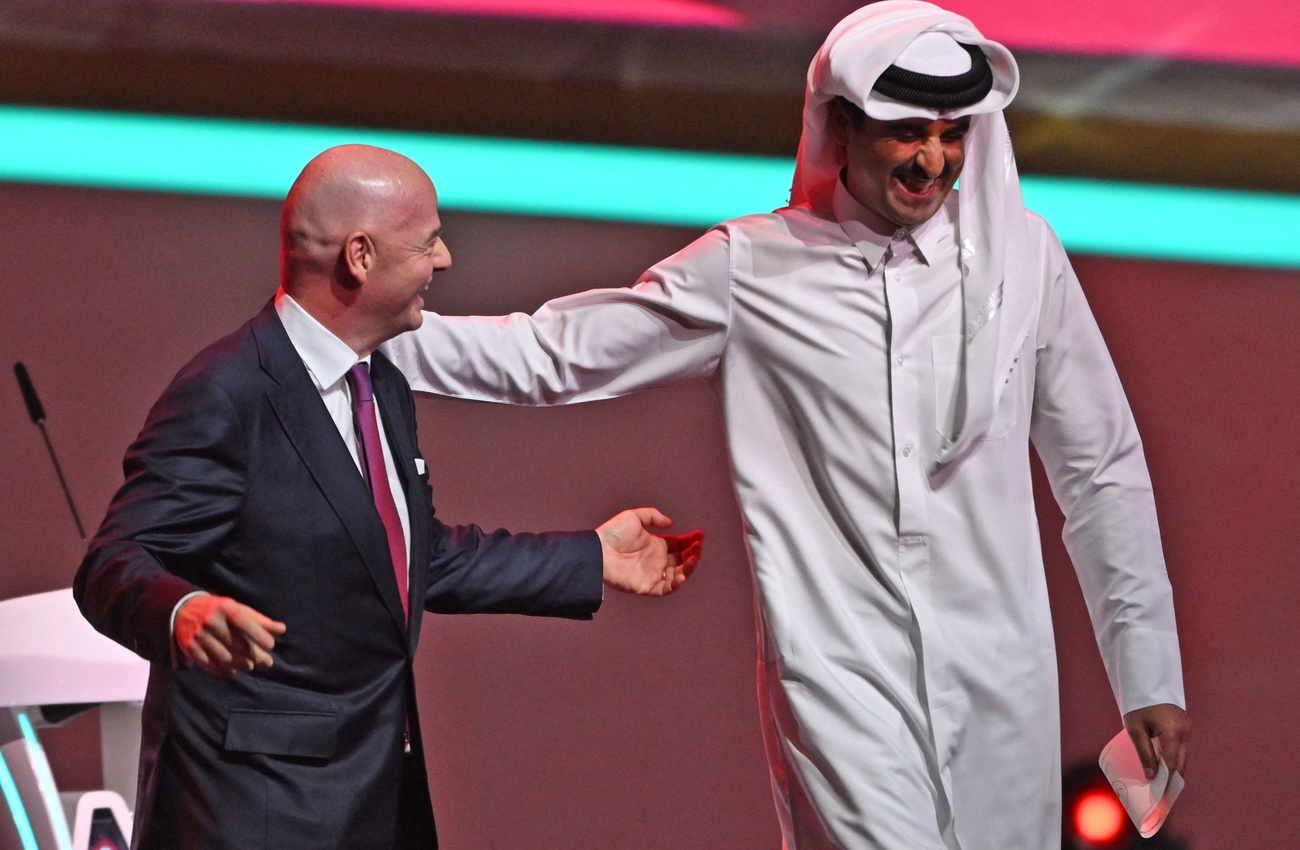
Qatar orchestrated a large-scale and long-standing intelligence operation against FIFA officials with the help of former CIA operatives. Switzerland was a key theatre of operations. The highest echelons of the Qatari government were involved.
An espionage network working in secret. Intelligence agents planning on swaying world events in a covert operation. Hackers stealing controversial information. And an obscure client funding the entire project with hundreds of millions of dollars.
This is the story of a global secret operation.
An investigation by Swiss media SRF’s investigative team, “SRF Investigativ”, shows the details of how the state of Qatar had officials of world football spied on. And how critics of the upcoming World Cup outside of FIFA were targeted as well.
The ultimate goal of those efforts: to prevent Qatar from losing the World Cup bid after massive criticism was raised, when FIFA awarded the tournament to the authoritarian country in 2010.
The scale of the espionage activities is considerable. One sub-operation alone involved the planned deployment of at least 66 operatives over nine years. The budget amounted to $387 million. And the activities spanned five continents.
The highest echelons of the Qatari government were involved in the espionage activities, including the current head of state, the Emir of Qatar.
The documents show that the desert country wanted to make sure that no change of position within FIFA, no new friendship, no potentially dangerous alliance, nothing that could jeopardise Qatar’s holding the 2022 World Cup could slip their attention. The goal was to gain absolute control. Or “worldwide penetration”, as it is referred to in a document of the espionage operation.
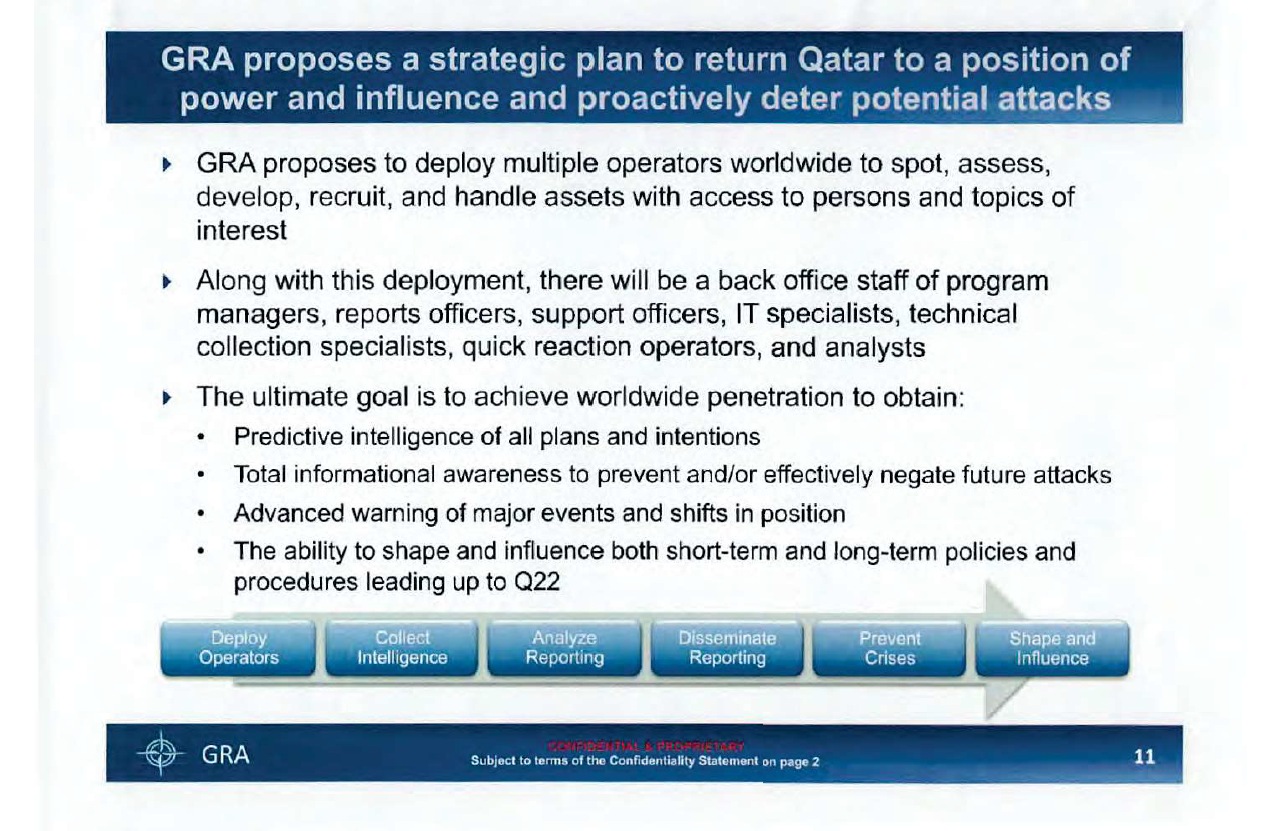
To do this, Qatar hired American private firm: Global Risk Advisors (GRA). The company’s staff consists of former members of US intelligence agencies; its founder is former CIA operative Kevin Chalker.
Switzerland was a key venue in the operation. The chief spy and his Qatari clients met in Zurich. And Switzerland is where they spied on various individuals. Thus, presumably, crimes were committed by order of Qatar.
Chalker denies all allegations. The state of Qatar did not respond to questions. Shortly after SRF had contacted them, the Emir of Qatar complained about a “campaign” against his country in a public speech.
The SRF investigation found that victims were at the mercy of the agents spying on them. Their email accounts, computers, phones, friends, and even family members became targets of Qatar’s shadow warriors.
The operation aimed at more than obtaining intelligence. The investigation concludes there was an invisible hand trying to pull the strings of FIFA policies during the past ten years. The spies claim to have penetrated the highest FIFA board, the FIFA Executive Committee.
This is the story of ‘Project Merciless’.
The story is set in a demi-monde. Spies are invisible. Their activities, however, have real-life consequences. In real places.
On 5 January 2012, a cyberattack on a Swiss citizen is launched.
A former advisor to FIFA President Sepp Blatter receives strange emails. Their senders seem to want to get him to open the attachments to the messages by all means. They try again and again.
Had he clicked on the files, a software secretly would have been installed on his computer. Without him noticing, the software would copy all data on its hard drive and send it to the hackers.
The man sitting behind the computer is Peter Hargitay. Officially, he acts as an advisor, but within FIFA, he is considered a spin doctor, an influential power broker behind the scenes. He had been close to the then omnipotent president Sepp Blatter. Later, he was a consultant for the Australian football association and its chairman Frank Lowy, a billionaire. Hargitay was meant to help Australia host the 2022 World Cup, and therefore worked closely with Lowy.
Hargitay’s computer no doubt held valuable information. A treasure trove for anyone who would like a good grasp of the real goings-on at FIFA.
Who could want such information so desperately that he or she was prepared to be liable to prosecution?
Indian lead
Hargitay is a Swiss citizen; his company had an office in Zurich at the time. He filed charges, and the attack on the FIFA insider became a case for the Swiss authorities.
Evidence quickly pointed to the infrastructure of an IT company based in India, Appin Security. SRF obtained records of the Zurich criminal proceedings. The hackers seem to have been careless in their work. The server they used for the attack holds many pieces of evidence indicating the involvement of Appin.
On November 6, 2022, this publication was amended due to an interim court order. The name of the entrepreneur concerned has has been removed from the publication.
Appin is an elusive company. At the time, it was controlled by an Indian entrepreneur. Officially, Appin offered legal services only, including the protection against hacker attacks.
A legal representative for the entrepreneur told SRF that his client was “a successful international entrepreneur with a good standing. He has never been questioned by law enforcement authorities in any country. He clearly denies all connections with any illegal activities whatsoever.”
However, attacks that bore the fingerprint of Appin started to attract attention around the globe. They seemingly followed no pattern, as if the Indian company was attacking at random.
According to the investigation by SRF and international media reports, a relatively new business model is behind the method: A company attacks targets for a fee and provides the information to a client. It is called “hacking for hire”.
The attack on FIFA insider Peter Hargitay was just contract work.
But who is the client?
Documents show that Peter Hargitay was the target of a secret spy network that worked for the government of Qatar. A highly confidential Global Risk Advisors planning document reveals what presumably happened in the hacking case. And it shows that Swiss citizens were apparently attacked on behalf of the Qatari government.
The documents reveal a plan for a global smear campaign, a cynical manipulation of the FIFA power base. The idea presented in the document was to collect incriminating information on FIFA insiders Hargitay and Lowy and leak them to the Federal Bureau of Investigation, the FBI.
The paper is entitled «Project Clockwork: Concept of Operations» and is dated from December 2011 – just one month before Peter Hargitay received the first contaminated emails.
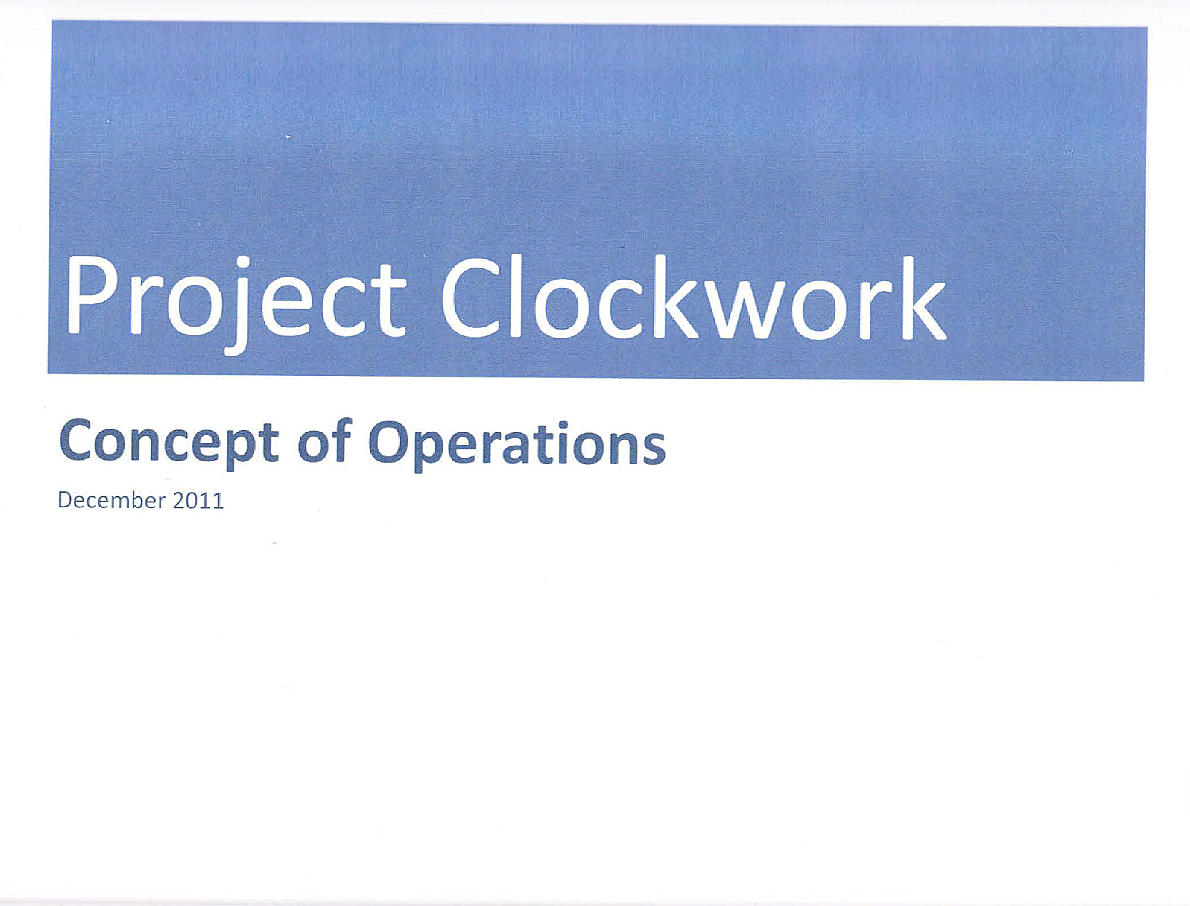
The real target was Lowy, not Hargitay, as documents shows. Lowy had been working closely with Hargitay for the Australian World Cup bid. The reason for the spies’ efforts against Lowy seems obvious: The Australian was a bitter opponent of the World Cup being held in Qatar, and he had said publicly that the desert country may lose the tournament.
The planning document says under the title “what we must accomplish”: “9-month-plan to neutralize the role and influence of […] Frank Lowy”. It also mentions that Lowy was a difficult target. His wealth and network gave him access to considerable means in the area of counterintelligence. This risk for Global Risk Advisors’ officers, in the event that anything went wrong, was considered high. The document also specifies that the «Deadline demands brute force attack.». In addition, the document features a picture of Peter Hargitay.
In the section entitled «Walking the tightrope», the operatives lay out how they intended to neutralise Lowy and Hargitay. They apparently had inside knowledge of an investigation by US law enforcement agencies, and they planned to use that investigation for their own purposes.
The document alleges connections between Hargitay, Lowy and the Russian bid for the 2018 World Cup, and says, “Can we help connect the dots?”, followed by, “Provide supporting evidence to relevant law enforcement agencies”.
An investigation by the FBI would have destroyed both Lowy’s and Hargitay’s reputation on a global level. They would have been effectively “neutralised”.
According to documents, Qatar approved “Project Clockwork“. And within one month of the drawing up of the planning document, Hargitay’s computer was hacked. That the attack was carried out by another company is not unusual. Global Risk Advisors frequently draws on the services of subcontractors to carry out operations, the SRF investigation shows. This approach makes ascribing the attack to Chalker’s company difficult. And identifying Qatar as the client even more so. In one document, the company explicitly promised to provide “patsies” and “lightning rods” to deflect suspicion on.
Chalker had identified Hargitay as an important target long before the cyberattack on him. He had said so to associates at the time. Chalker even had a code name for Hargitay: “Broken Arrow”.
Tip of a massive iceberg
The plan to compromise Lowy and Hargitay, however, represents the tip of a massive iceberg. In the years following the decision regarding the World Cup at the end of 2010, an undetected espionage and manipulation operation no one could have imagined unfolded behind the scenes of FIFA.
SRF obtained a range of documents that describe the operation. The reporters received the information from multiple sources who had authorised access to them.
The brains behind the espionage activities is Kevin Chalker, a former member of the Central Intelligence Agency (CIA), the foreign intelligence service of the USA.
Chalker – brown-haired and wearing an auburn beard – had been working for the CIA during at least five years. And he did not work as an analyst in some office, he acted as an “operations officer” and thus in an area of the intelligence service that is carrying out undercover activities. A real spy.
Chalker left the CIA several years ago. Subsequently, he was first in talks to work for Diligence, a British private intelligence company. But he ended up founding his own firm, Global Risk Advisors. His team mainly consists of former members of US intelligence services. Eventually, Global Risk Advisors was working for Qatar.
A lawyer for Chalker denied all allegations when reached for comment by SRF: “Global Risk Advisors and Mr. Chalker know nothing about these purported new hacks or the other misconduct suggested in your inquiry, and certainly did not participate in them in any way.” Further, “You claim to have documents from GRA to support some of the false accusations. To the extent you actually have any documents, as a journalist you should challenge their authenticity”.
SRF employed a number of measures to verify the authenticity of the documents. Chalker offered no comment on specific questions regarding the nature of the role he played in Qatar.
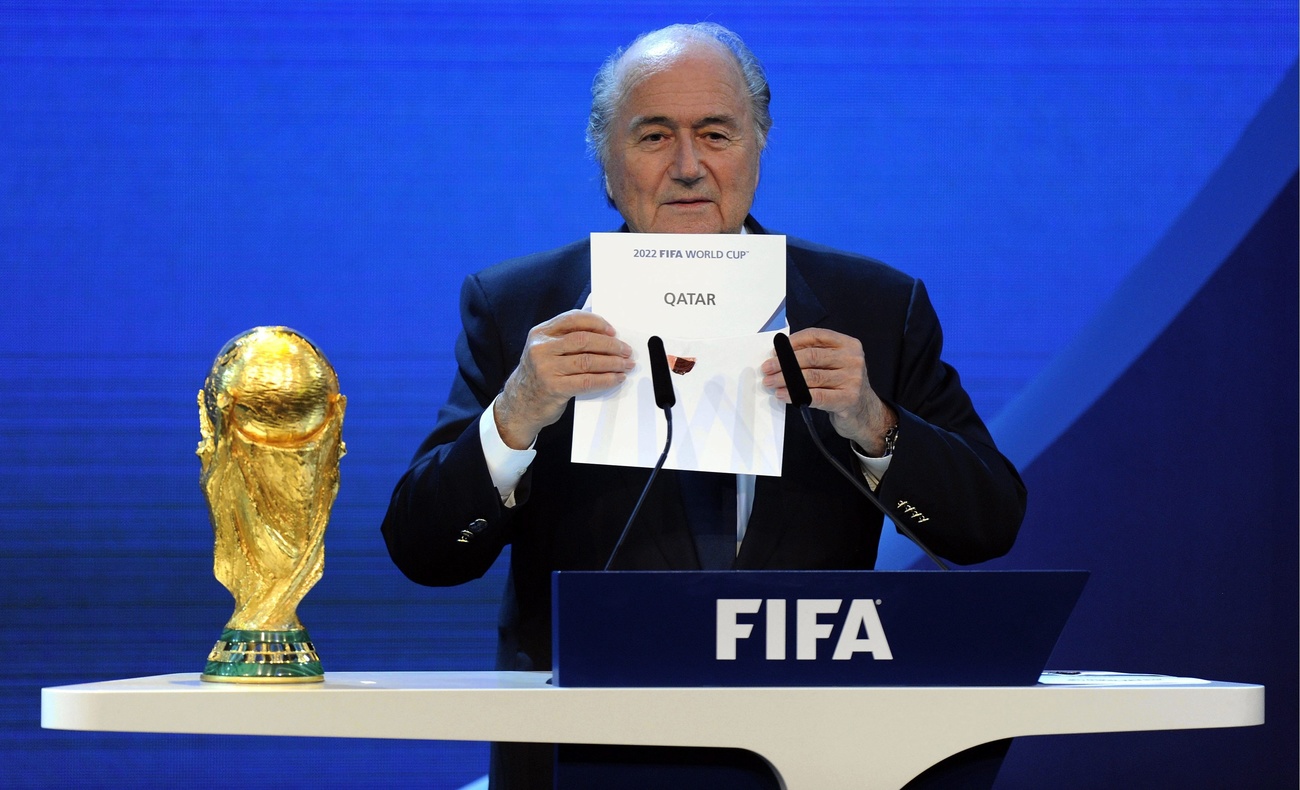
The SRF investigation shows that initially, prior to the awarding of the World Cup in December 2010, Chalker spied on the various bids. But upon the criticism raised with regard to corruption and human rights violations in Qatar after the World Cup was awarded, the target changed. Now, the task was to prevent FIFA, at all costs, from taking the World Cup from Qatar.
Chalker and his company developed the plan that would leave nothing to chance.
“Project Clockwork” and the activities against Lowy and Hargitay were just part of that plan.
The next part was “Project Merciless”. Its project description reveals just how elaborate the intelligence service gimmickry was going to be, and how ambitious the project was.
“Qatar must attain predictive intelligence to achieve total informational awareness”, the document reads. The plan was to know the plans and intentions of various targets in advance, including those of “critical elements within FIFA”, of “FIFA President Sepp Blatter”, and of “key FIFA ExCo members – present and future”. The abbreviation stands for the FIFA Executive Committee.
“The ultimate goal is to achieve worldwide penetration,” the document specifies. Global Risk Advisors intended to miss nothing. No changes to any plans, no changes in positions within FIFA. The goal was to gain absolute control.
IT specialists and experts for “technical collection” were to be deployed for the project.
According to internal company documents, “Project Merciless” was approved by Qatar, with a budget of $387 million.
This was just the “low” option out of three presented. But apparently, it did make an impact. One document reads: “The greatest achievement to date of Project Merciless […] have come from successful penetration operations targeting vocal critics inside the FIFA organization.”
Another document describes the activities as follows: “[The project] is designed to hide Qatar’s role in operations, while utilizing technology and human intelligence to […] manipulate public sentiment.”
The highest echelons of the Qatari government were involved in Chalker’s activities, “SRF Investigativ” found. According to documents reviewed by SRF, the then heir to the throne and current Emir Tamim bin Hamad Al-Thani personally ordered the obtainment of detailed phone and SMS records of several members of the FIFA Executive Committee prior to the awarding of the World Cup.
How exactly the Emir was involved after the World Cup was awarded to Qatar remains unclear. The operation still had a code name for him – “Apex” – years later.
Clearly, however, Chalker and Qatar were more than ready to take risks, and they did not shy away from targeting prominent figures. A document obtained by SRF indicates that Michael Garcia, the lead investigator of the FIFA Ethics Committee, may have become a target for operations. The document entitled “Target Profile” contains several pages describing Michael Garcia.
According to the news agency Associated Press, the FBI has been investigating Chalker for several months. In addition to potential violations of the law in the area of lobbying and exporting sensitive technology, prosecutors are focusing on Chalker’s surveillance activities on behalf of Qatar. The Associated Press published reports on Chalker’s operations for the desert country in connection with the world cup last yearExternal link already.
Neither the Qatari embassy in Bern nor the Government Communications Office in Doha responded to various information requests by SRF. Shortly after the requests, the Emir held a speech in the Consultative Assembly of Qatar, a kind of parliament without power, in which he mentioned that Qatar had become the victim of an “unprecedented campaign” after the country was picked as host for the World Cup. He said: “It soon became clear to us that the campaign continues, expands and includes fabrications and double standards, until it reached an amount of ferocity that made many wonder, unfortunately, about the real reasons and motives behind this campaign.”
Surveillance operation in Switzerland
The SRF investigation shows that Switzerland was key to the Qatari intelligence operation.
According to the investigation, Chalker, at the behest of Qatar, travelled to Zurich for the purpose of bugging the hotel rooms of members of the Executive Committee and of journalists.
One document includes photos obviously taken secretly as part a surveillance operation. They were taken at Zurich’s plush Baur au Lac hotel. And they show individuals connected to FIFA meeting with officials and journalists.
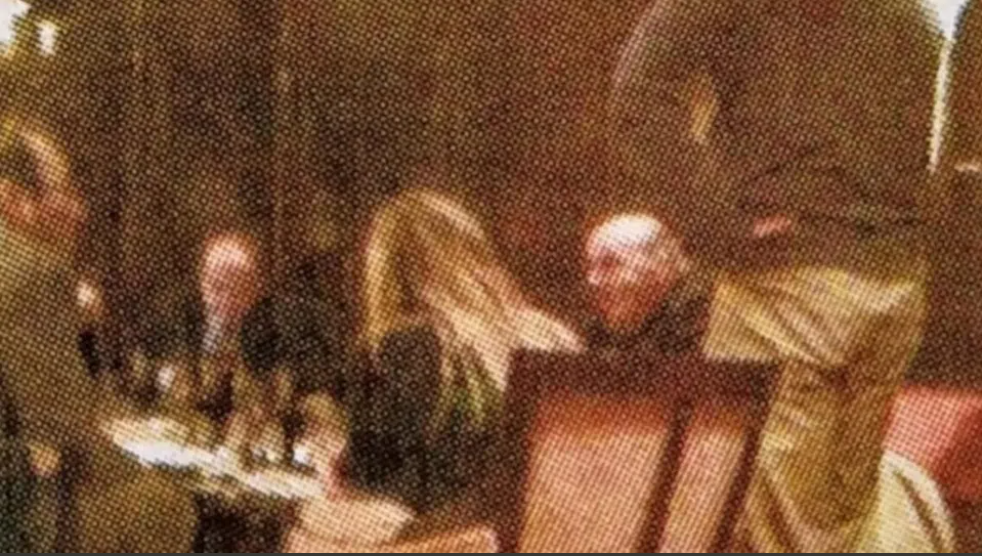
The operatives apparently felt at ease in Switzerland. According to the investigation, Chalker met his Qatari clients in Zurich to discuss operations. At least one member of Global Risk Advisors had his permanent base in Switzerland after Qatar was picked as the host of the 2022 World Cup.
That is a problem. Spying on behalf of a third country on Swiss soil is prohibited. Such activities may be indictable as espionage.
Nevertheless, Chalker met one of his closest contacts, a high-ranking Qatari official named Ali Al-Thawadi, in Zurich. His code name was “Shepherd”. He is the chief of staff of the current Emir’s brother, Mohammed bin Hamad bin Khalifa Al Thani, also known as MBH.
In addition, two young men had close ties to Chalker in the espionage operation on behalf of Qatar: Ahmad Nimeh, officially a consultant for the Qatari bid, and a Qatari named Ahmed Rashad. Both men have connections to a mysterious Doha-based company called Bluefort Public Relations. Nimeh was connected to so called “black operations” related to the World Cup by British newspaper The Sunday Times in 2018. Nimeh is the son-in-law of Patrick Theros, the former US ambassador to Qatar. Another close partner of Nimeh, Nikos Kourkoulakos, was officially working for the Qatar World Cup bid.
According to the register of companies, Nimeh’s colleague Ahmad Rashad is the majority shareholder of Bluefort Public Relations.
The investigation by SRF found that a key person for the upcoming World Cup, Hassan Al Thawadi, oversaw the spy operation on behalf of Qatar. He was the CEO of the successful World Cup bid and is the current general secretary of the Supreme Committee, a body that organises the World Cup in Qatar.
FIFA apparently remained largely oblivious to the spy operation. The organisation’s former President, Sepp Blatter, said in an interview with SRF: “That there was an organized espionage affair in FIFA, that surprised me. And it’s alarming”. Several documents show that Blatter was of great interest to the spies. They mention, for instance, that Blatter’s “plans and intentions” ought to be known in advance.
Chalker and Global Risk Advisors are currently facing a civil lawsuit in connection with similar alleged activities. The suit was filed by former US president Donald Trump ally Elliott Broidy. Private data of Broidy were leaked to newspapers in 2018, and he is accusing Chalker and his company of a hacking attack on behalf of Qatar. Chalker denies all allegations. The lawsuit is still pending.
‘Cancer of world football’
There was a figure in world football who seemed important enough to Qatari spies that they dedicated an entire project to him: “Project Riverbed”. The code name was used for the German football official Theo Zwanziger.
According to documents obtained by SRF, Qatar invested $10 million in the spying on and influencing of Zwanziger. The Associated Press reported the same number this spring.
Zwanziger had served as president of the DFB, the German Football Association, until 2012. And as a member of the FIFA Executive Committee until 2015 and thus an enormously influential football official associating with powerful figures in world politics, he was a critical and provocative voice against Qatar. At one point, he called Qatar the “cancer of world football”.
Qatar wanted to stop this. According to documents, a network was built around Zwanziger, consisting of people who were to influence him to the benefit of Qatar.
In order to neutralise Zwanziger, the spies relied on intelligence methods, as documents specify.
They mention “black ops”. Also in their sights was “Riverbed Family” – that is Zwanziger’s family. The Global Risk Advisors attackers apparently built relationships with individuals who were close to Zwanziger. They created a network of “assets, sources, and contacts” who were active on five continents, working on influencing Zwanziger.
Zwanziger was to be persistently presented with one message: “The 2022 World Cup in Qatar is good for the world”.
In order to salvage the World Cup, Qatar wanted silent critics. The efforts of the operation did not completely fail to have an effect on Zwanziger. He was brought into line within FIFA, as he says today. He led a working group that pushed for more human rights and less criticism of Qatar. In an interview with SRF, he said, “There were a number of people who steered me in that direction. Of course, that was in Qatar’s interest. To bring about precisely this change in thinking.”
But the efforts did not have the intended effect on his views, according to Zwanziger. In the interview, he said: “What they underestimated, however, is that I did not give up my opinion in the process. This award was – as I once put it – a cancer of world football. From there came many currents that have damaged world football. I still have that opinion today.”
As far as the espionage operation against him is concerned, Zwanziger thinks that FIFA was obligated to act. He said: “This is such a scandal. It should be taken up by those who are in charge. FIFA President Infantino would be the very first. But he won’t do that, of course, because he is a vassal of Qatar.”
FIFA and Gianni Infantino declined to comment.
Targeting unions
The International Trade Union Confederation (ITUC) presented another problem for Qatar. For years, the trade union federation, which includes 200 million members, had repeatedly raised questions with regard to the World Cup in Qatar. And it worked to make sure that the suffering of workers in Qatar was brought to the attention of the world and moved people.
The union became a victim of a cyberattack at the end of 2015. Someone had copied the email account of the then media spokeswoman for the general secretary. And the emails soon appeared – in an altered version, according to the union – in the media.
The attack bore the fingerprints of Global Risk Advisors. SRF obtained a document, in which Global Risk Advisors identifies the union as an equally serious problem for Qatar as FIFA or the Gulf Cooperation Council – a major group of countries on a diplomatic level.
The spies also drew up a detailed network of relationships of people who work for the union and in what way they were connected to FIFA. This document mentions the media spokeswoman, who was hacked.
FBI attention
Even though he never played a professional football match in his life, Sunil Gulati is one of the most important figures in US football. He started out by carrying the towels for the members of the junior national team, before he advanced to the position of president of the United States Soccer Federation. For decades, he was the most influential individual in North American football. Pictures taken in those days show him with Barack Obama, Bill Clinton, or Joe Biden.
At the height of his power, Gulati was spied on, his computer was hacked, apparently without being noticed. The evidence for the attack on Gulati seems unimpressive at first: an ordinary digital folder
However, the folder contains approximately 800 files, all of them stolen from Gulati’s computer. The hacker seems to have copied all PDF, Word, PowerPoint and Excel files on that computer. And these copies found their way to SRF.
The files include confidential documents, such as the employment contract of the then US national coach Bob Bradley, as well as letters to and from Gulati and other FIFA officials. The hack did not spare Gulati’s private life. There is a photo book in the files, for instance, documenting Gulati’s childhood years, and there are health data.
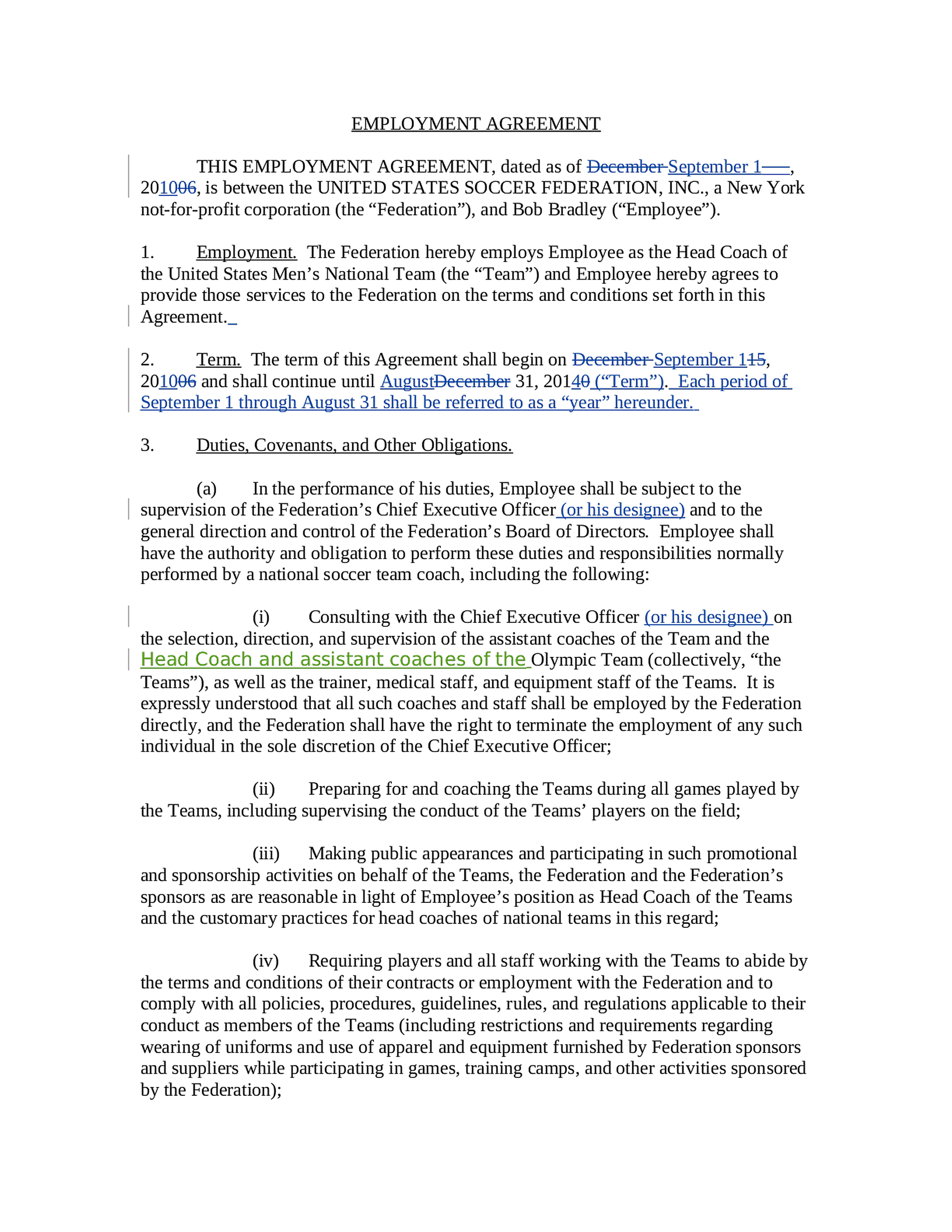
Gulati was a direct competitor of Qatar two years earlier, during the World Cup bidding process. He was president of the American bid for the 2022 World Cup, during which time Global Risk Advisors took an interest in him and prepared a multi-page personal dossier on him.
The metadata show that the last of Gulati’s files were edited in spring 2012. The hack therefore presumably occurred just weeks after the attack on Hargitay. FIFA insiders SRF talked to consider Gulati a Qatar critic.
There is no doubt that someone whose identity is still not clear wanted to know what was on Gulati’s computer. And that they were not reluctant to launch a cyberattack on a US citizen, even though the FBI strictly prosecutes cybercrime.
The inactivity of Swiss authorities
Agents have spied on the world of football on behalf of Qatar for ten years. SRF found that Zurich’s public prosecution department knew about one alleged activity of the spy network early on. They were aware of the hack on Peter Hargitay’s computer since 2012 – when the attackers first launched their operations. And it was obvious that the Hargitay case was a big deal.
However, nothing much happened with regard to investigations by the public prosecution department. Prosecutors omitted obvious investigative actions. The most striking example for this concerns the CEO of the Indian company Appin Security which had been considered suspicious in the case. The prosecutor initially asked the CEO whether he would be willing to answer questions regarding the case. A lawyer informed the prosecutor that the entrepreneur would be willing to do this in writing. But then the prosecutor simply did not send any questions. It remains unclear why.
Eventually, the public prosecution department closed the case eight years later for lack of suitable investigative avenues. The Zurich public prosecution department said in a statement to SRF that, for legal reasons, they were unable to comment on their own activities in the proceedings. A spokesperson wrote that there had been comprehensive efforts for the investigation on file that had been carried out within legal provisions. The spokesperson further said: “There was no exertion of influence on any members of the public prosecution department.”
The former CEO lives in Switzerland today. In autumn 2020, just after the investigation was closed, he purchased an impressive villa. According to the land registry office, he paid CHF13.5 million to the daughter of a Ukrainian oligarch in the transaction. He now presents himself as a renowned start-up investor and had his picture taken for the French edition of Swiss magazine Bilanz.
What would he have testified had he been asked to in 2013? Would the story have taken another course? Would the Qatari spies have scaled back their efforts for fear of being exposed? There will be no answer to such questions.
Less than three weeks to go until the starting whistle is blown for the first match in Doha. Millions will set their eyes on Qatar. But maybe they will not view things in the way the Emir had always wished them to. If the 2022 World Cup turns out to be a celebration of football, it will be one that is tarnished by intelligence agents, lies and manipulation.
The original SRF investigation can be found hereExternal link.
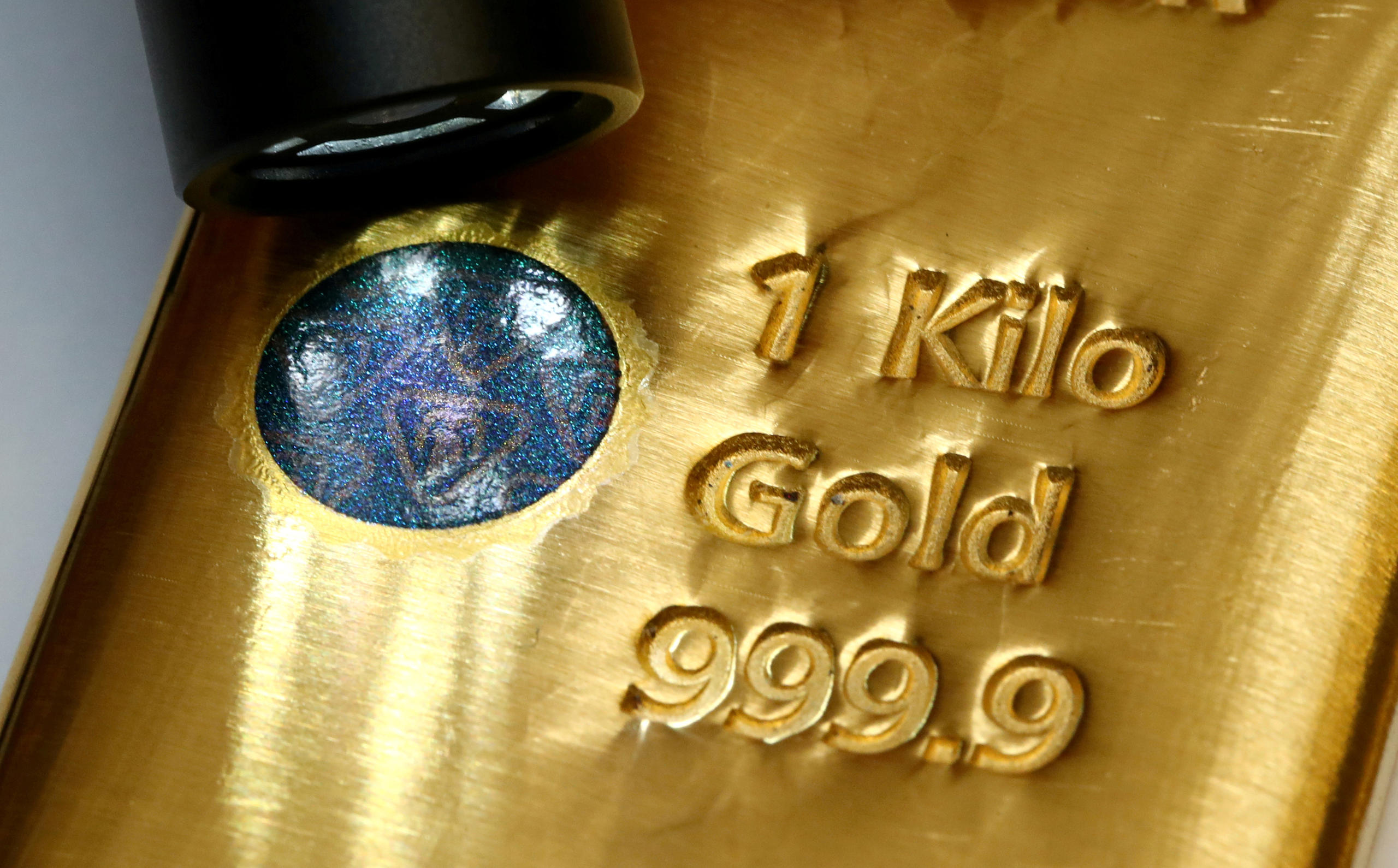
More
Sicpa – the hidden cost of selling trust
External link
In compliance with the JTI standards
More: SWI swissinfo.ch certified by the Journalism Trust Initiative
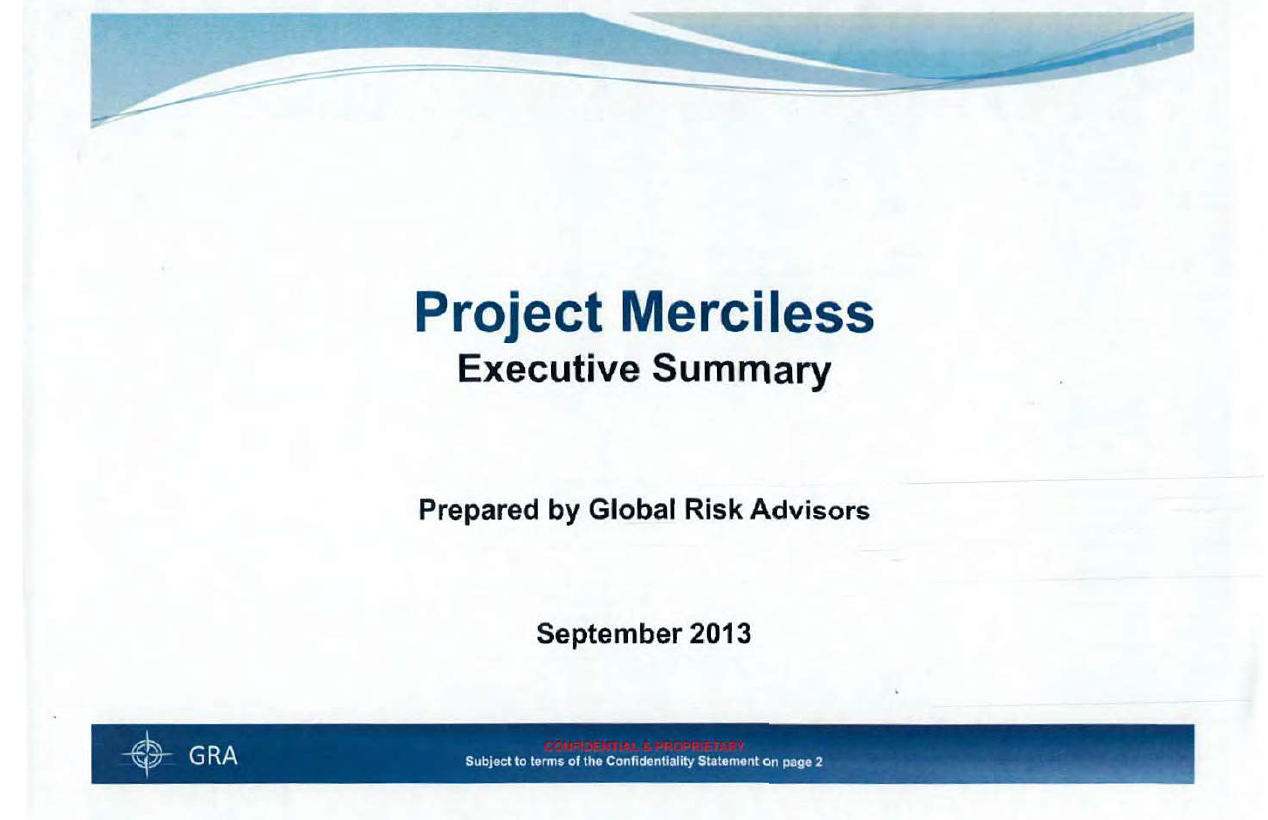
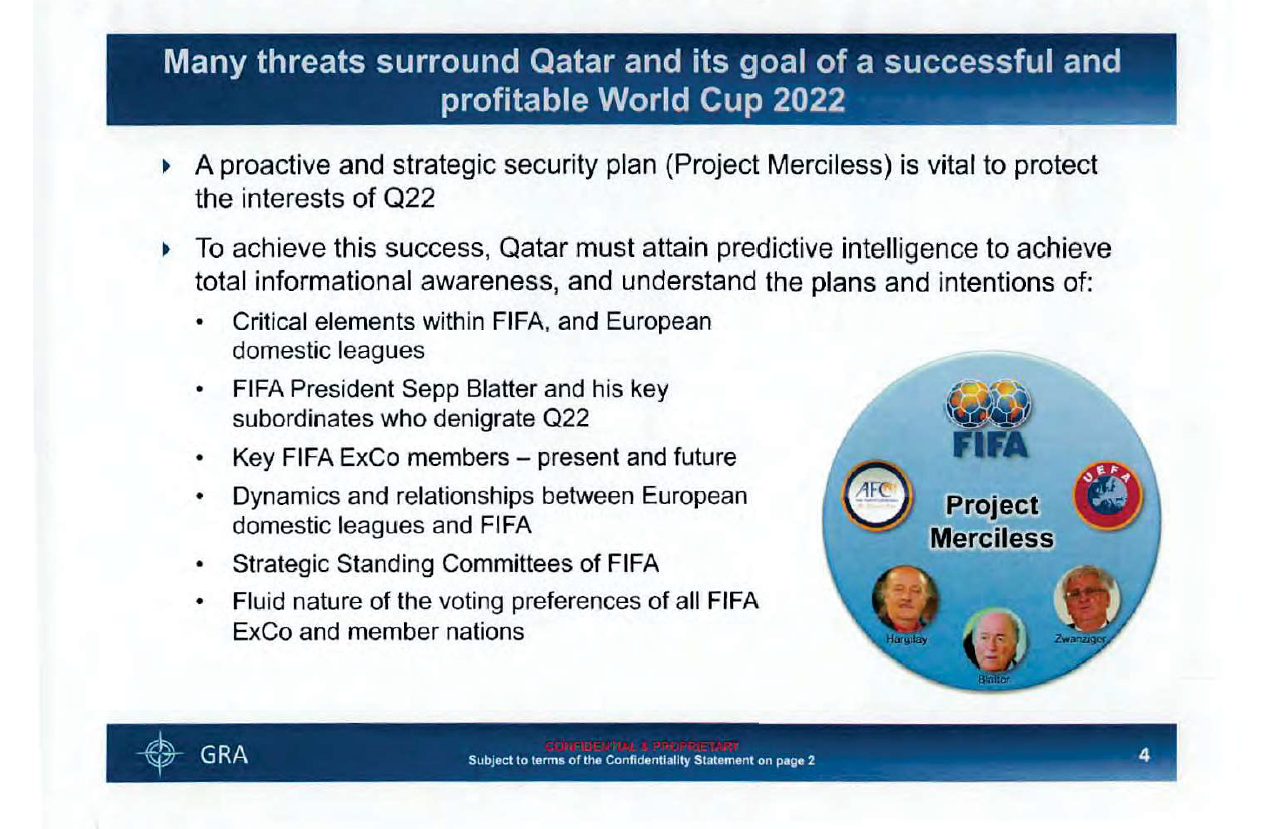
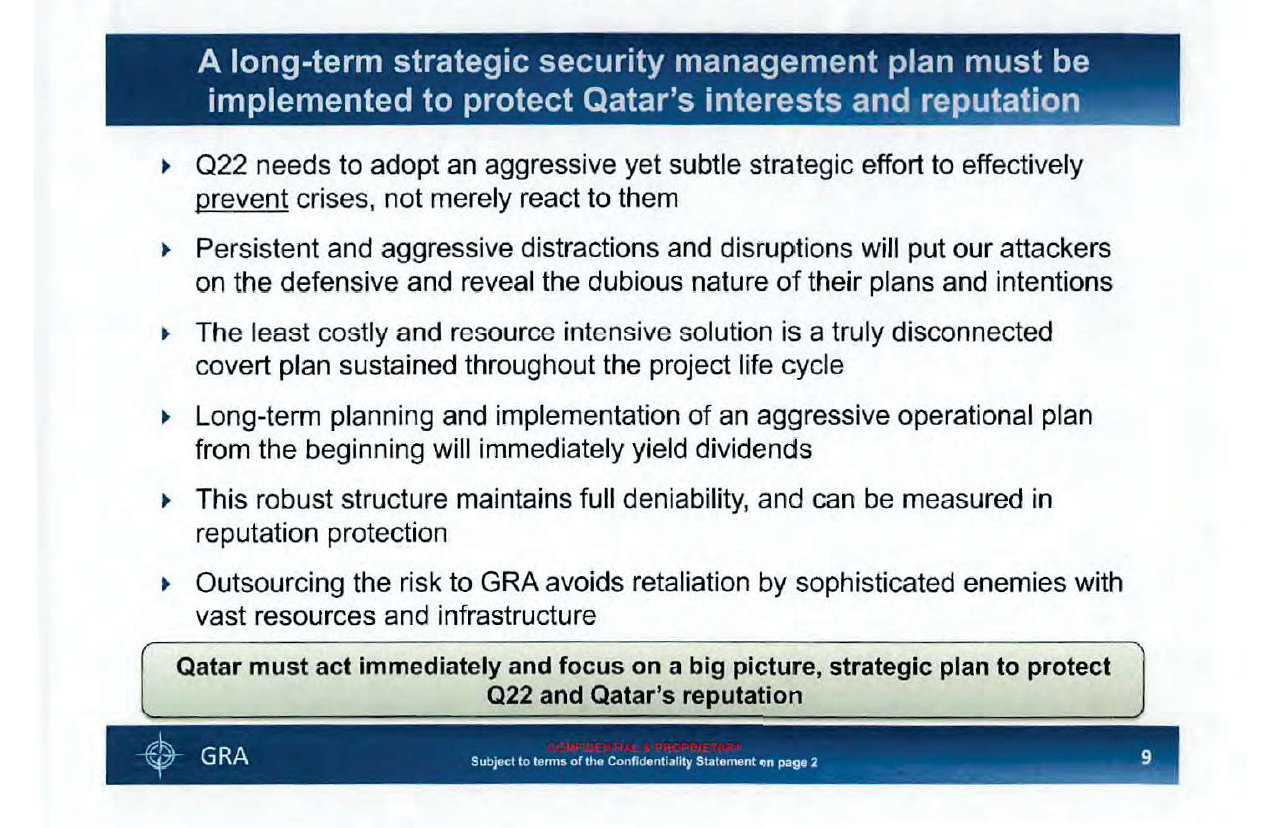
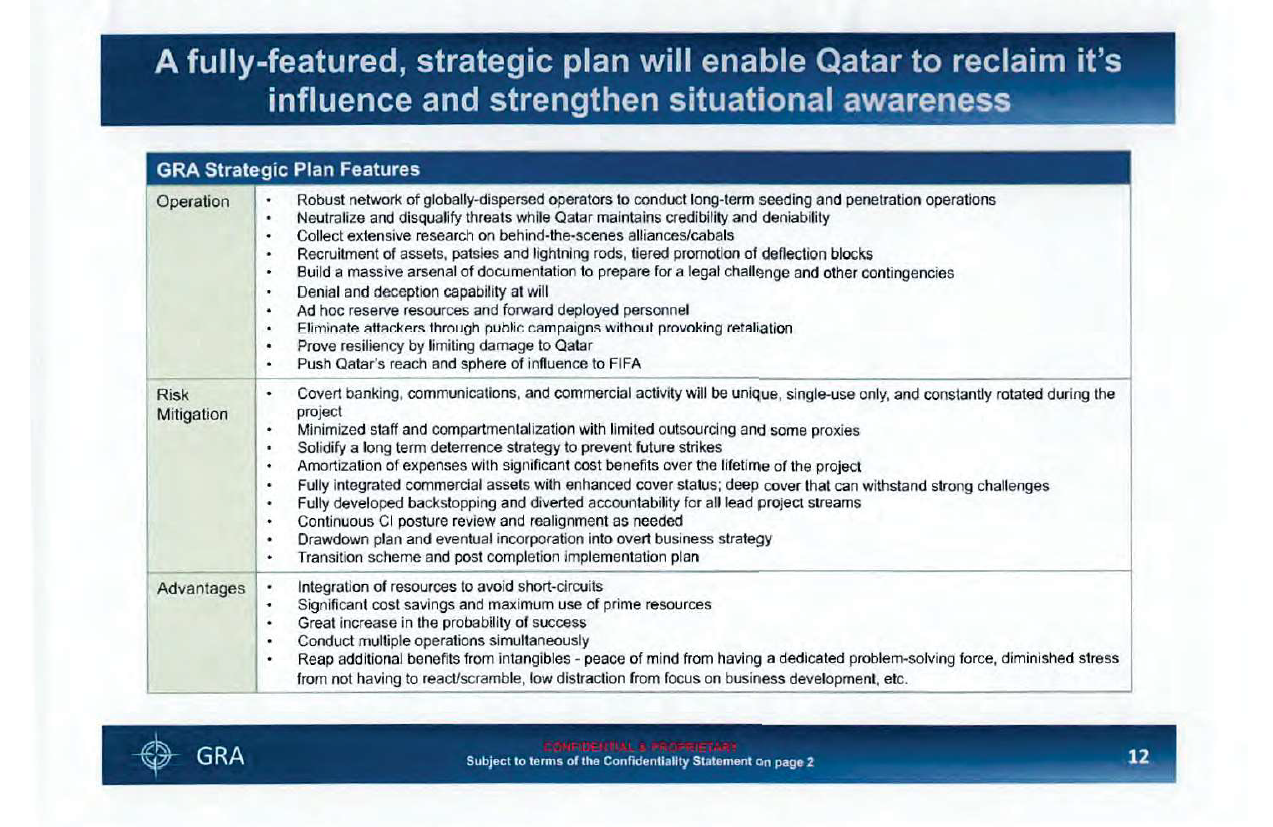
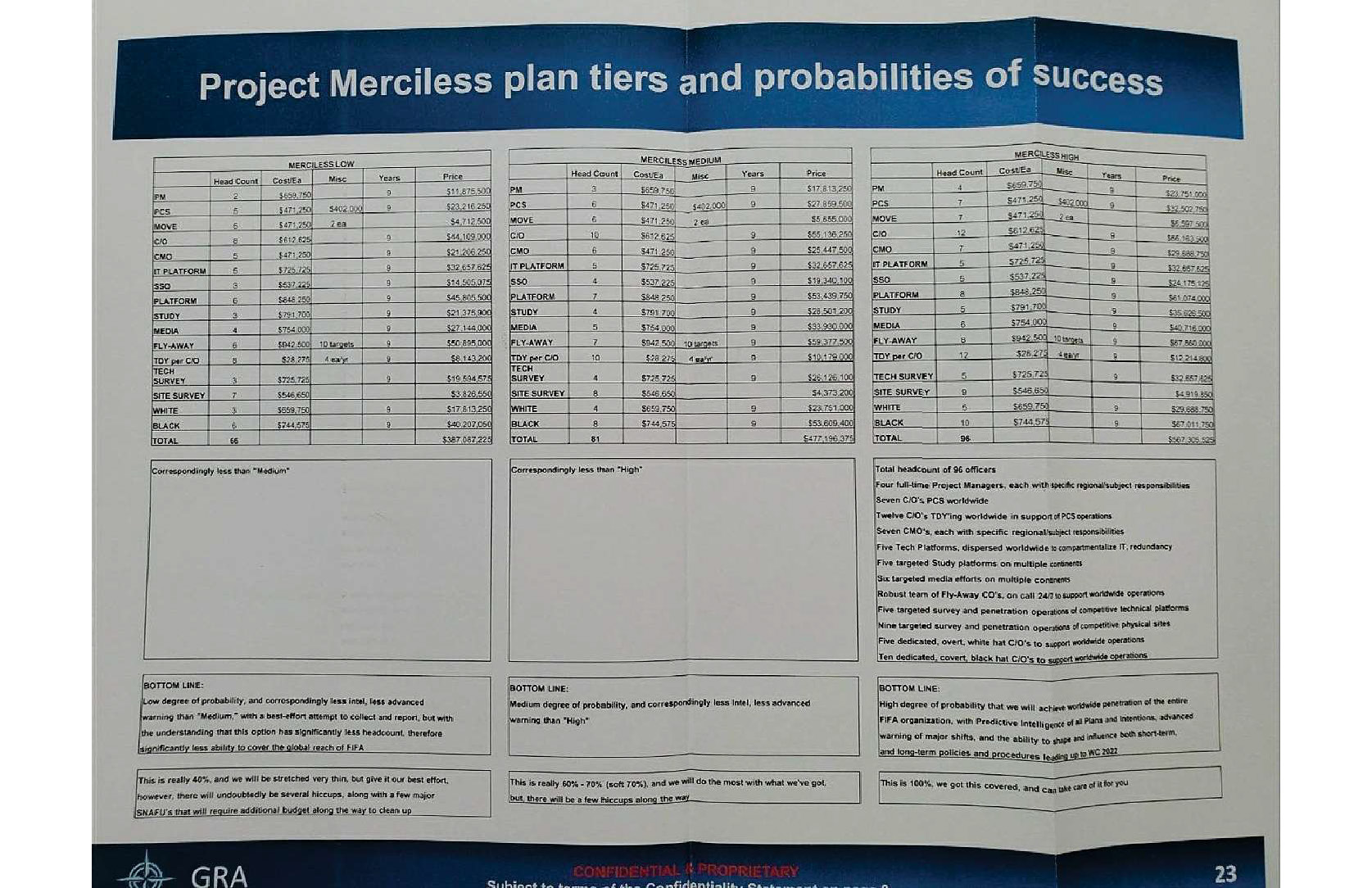
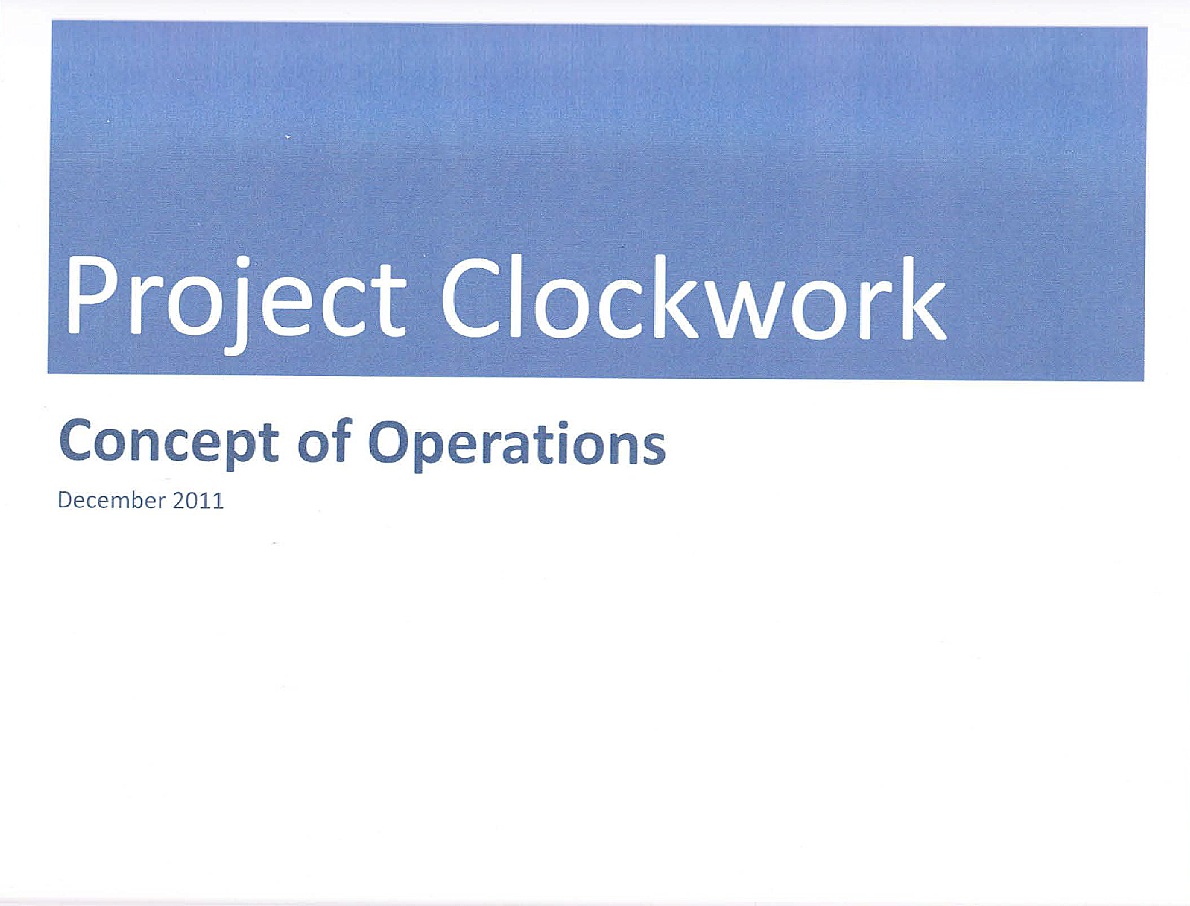
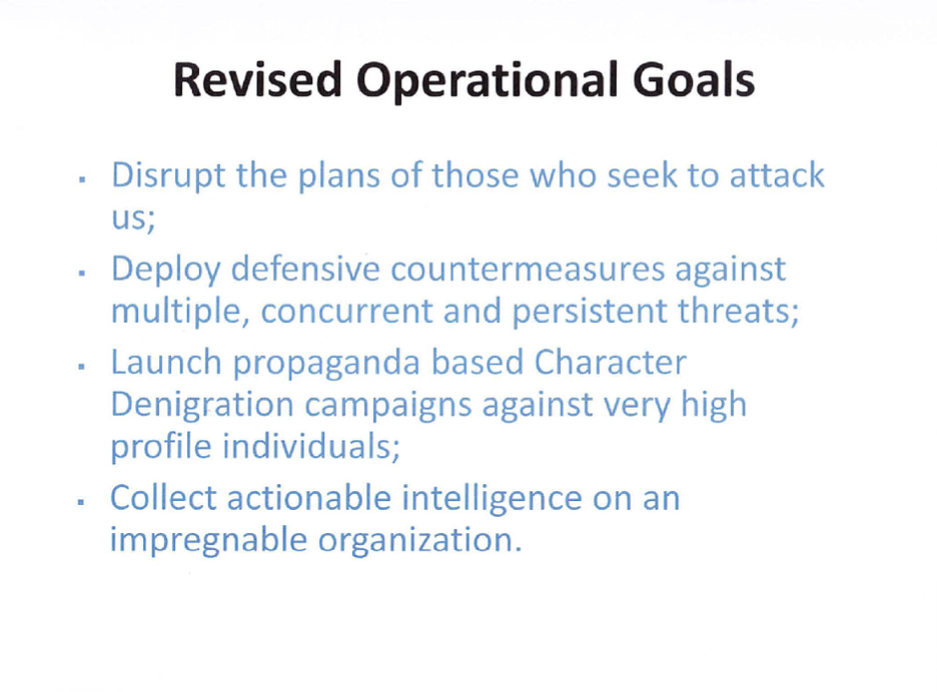
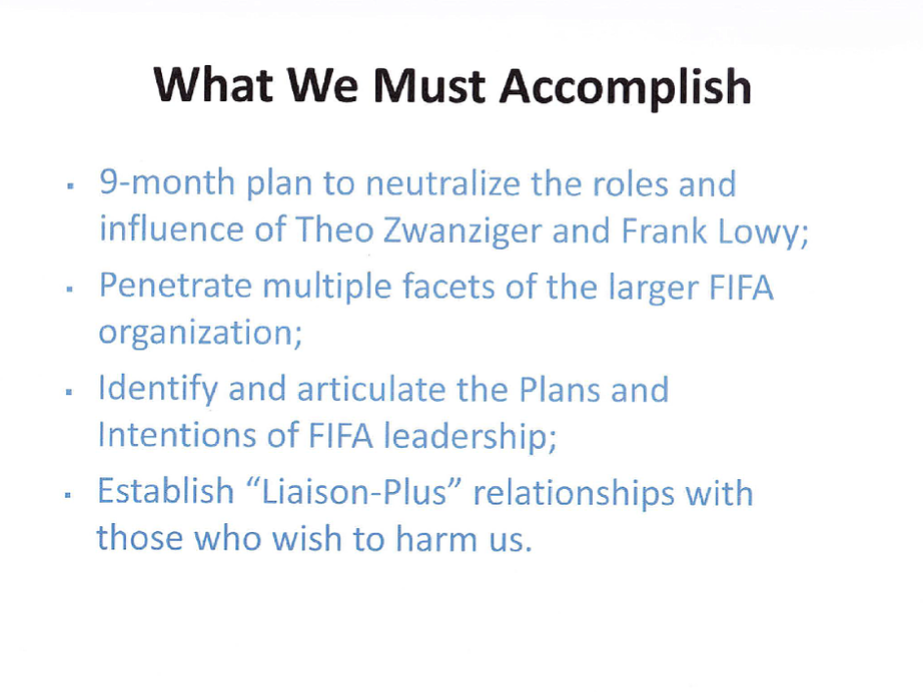
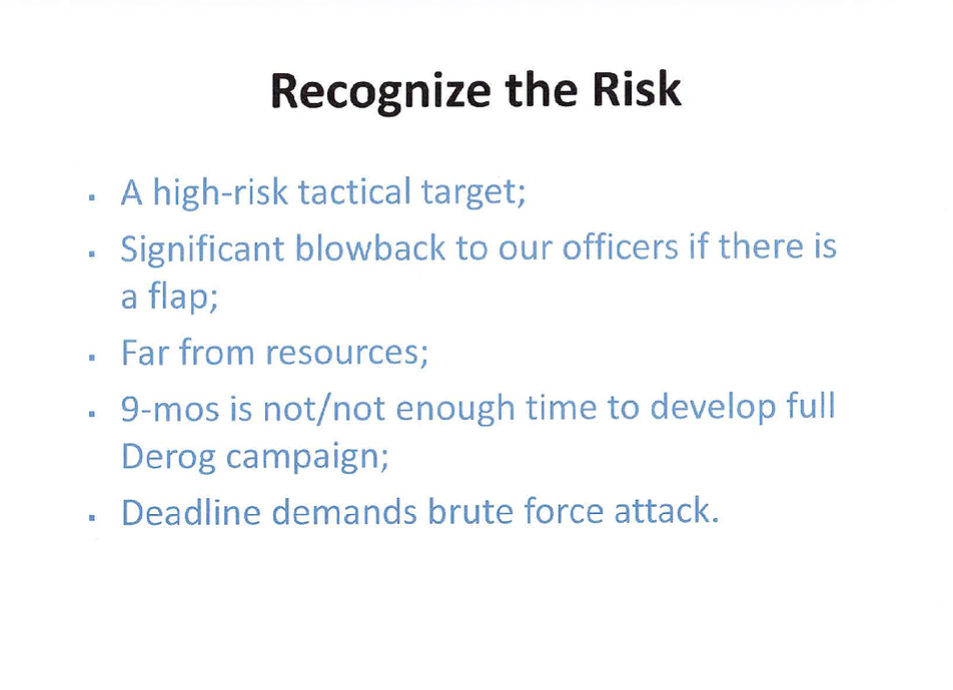
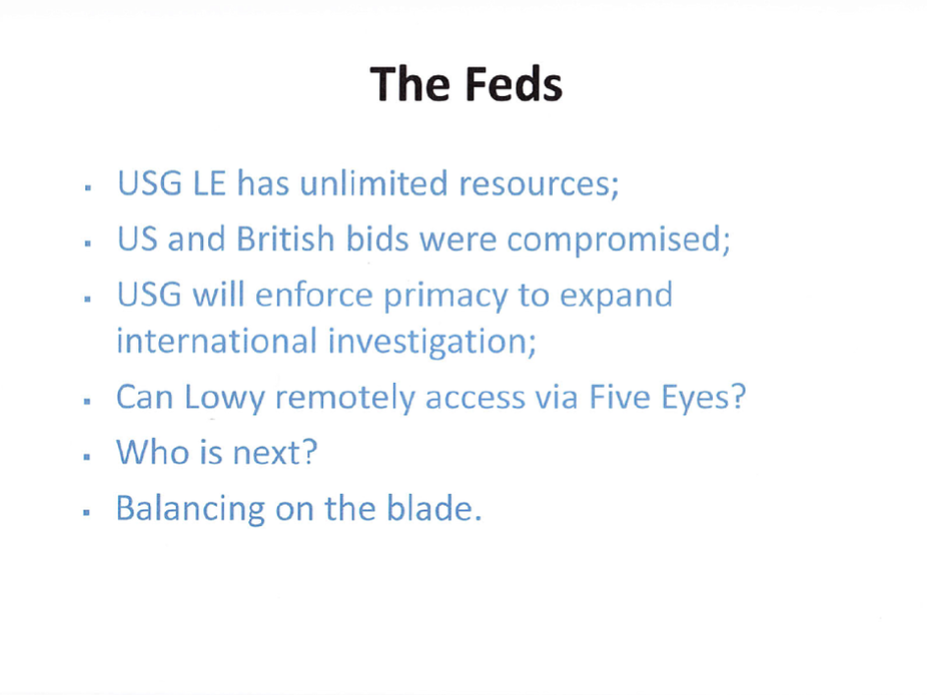
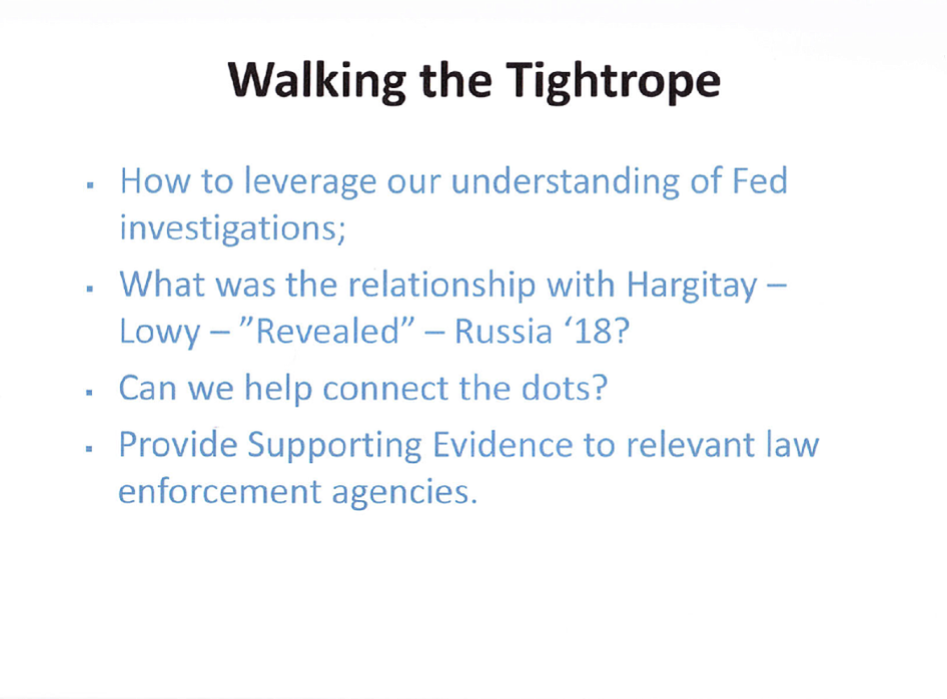
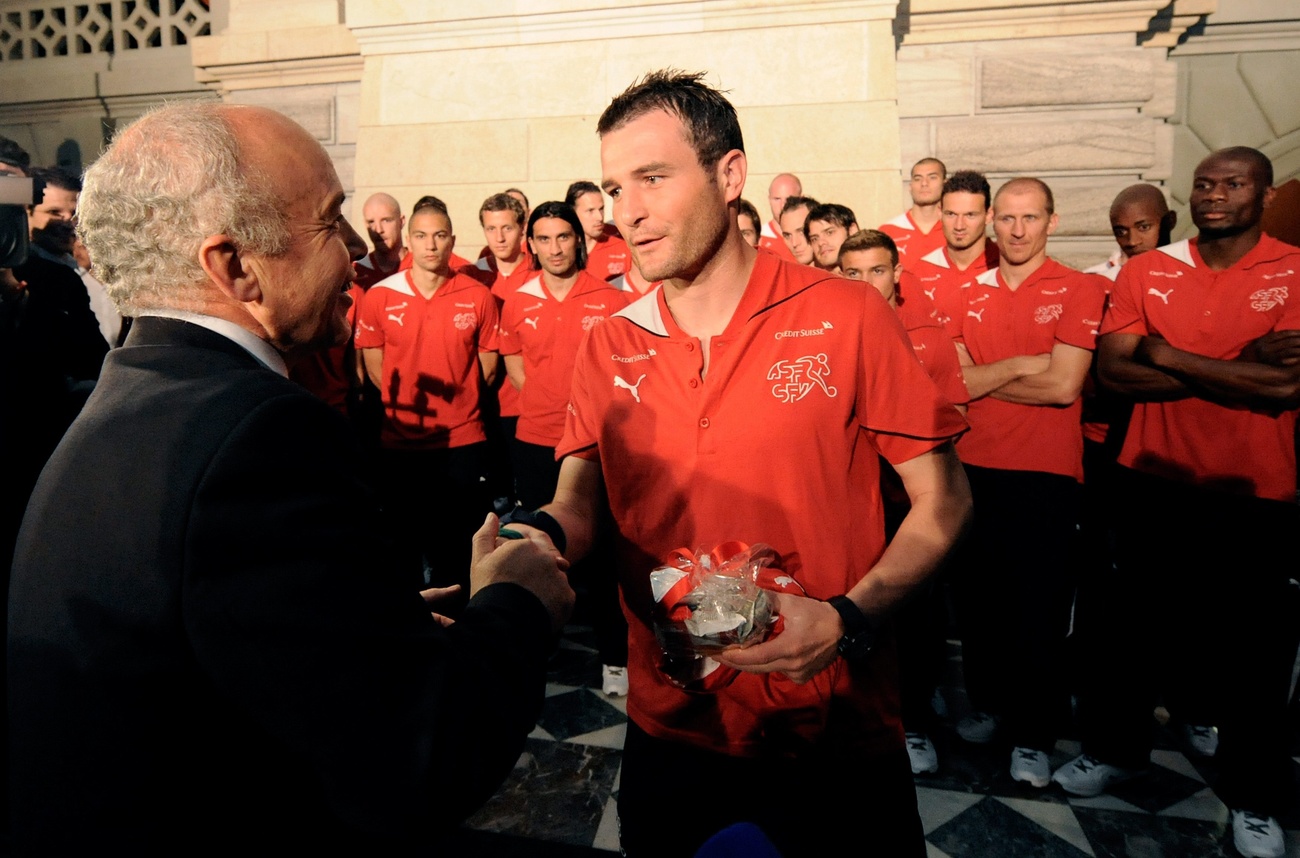
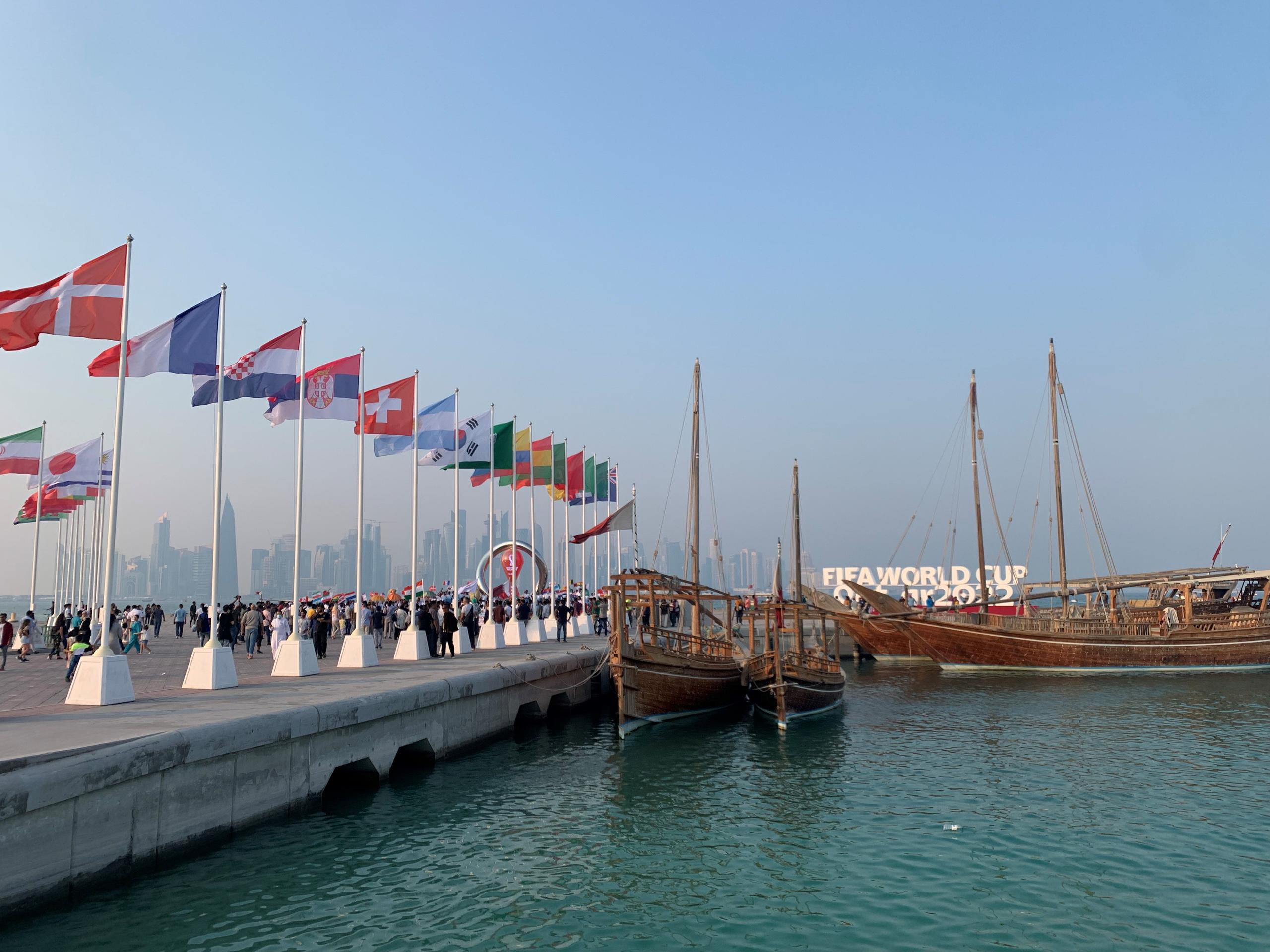
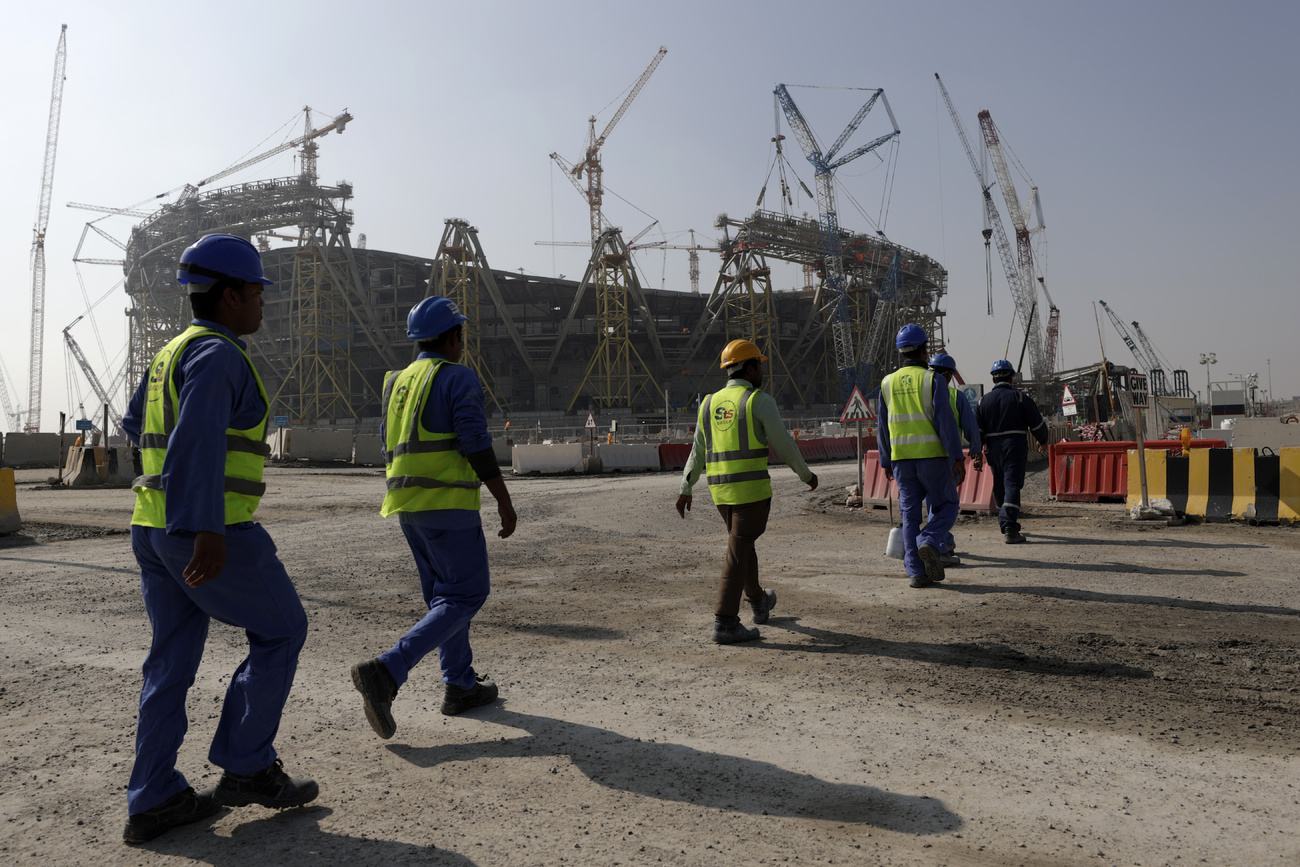
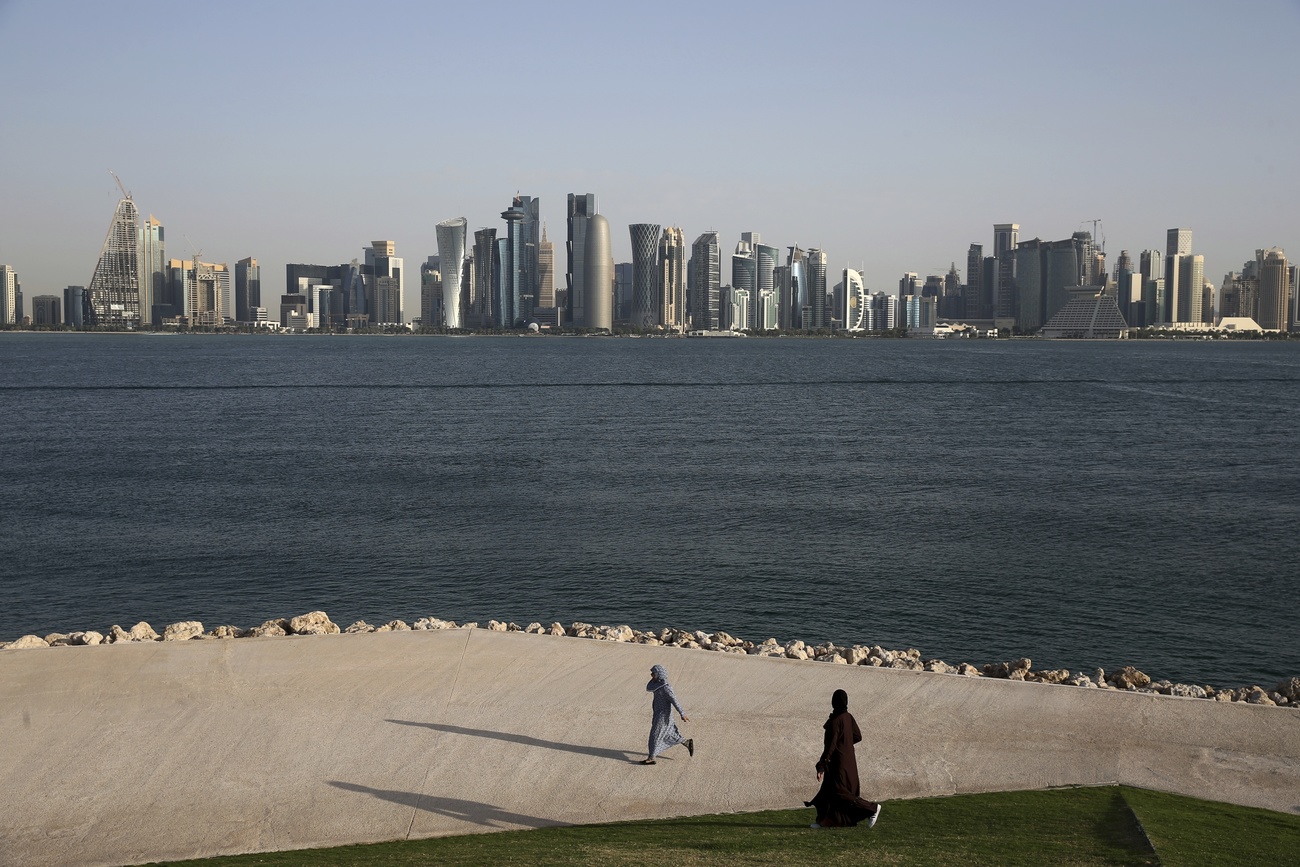
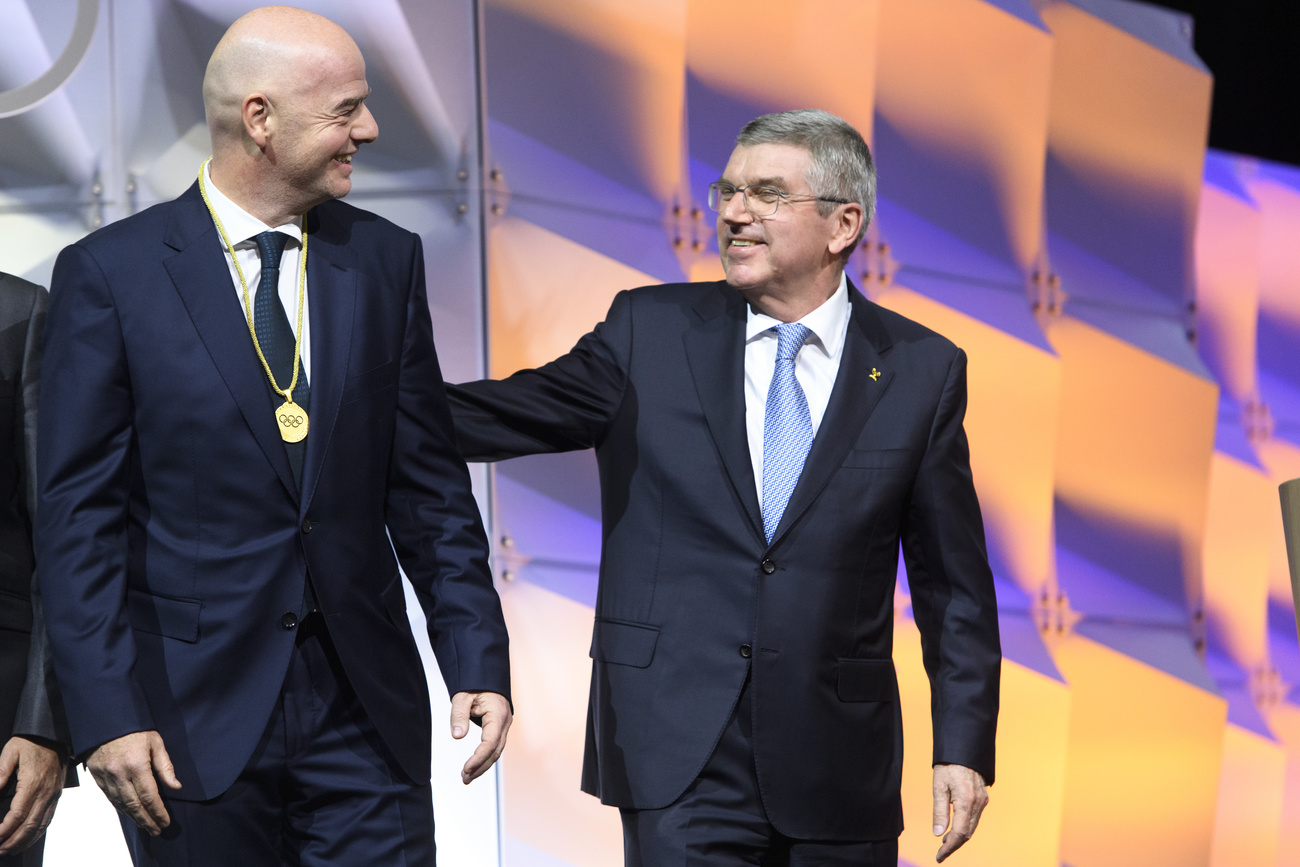
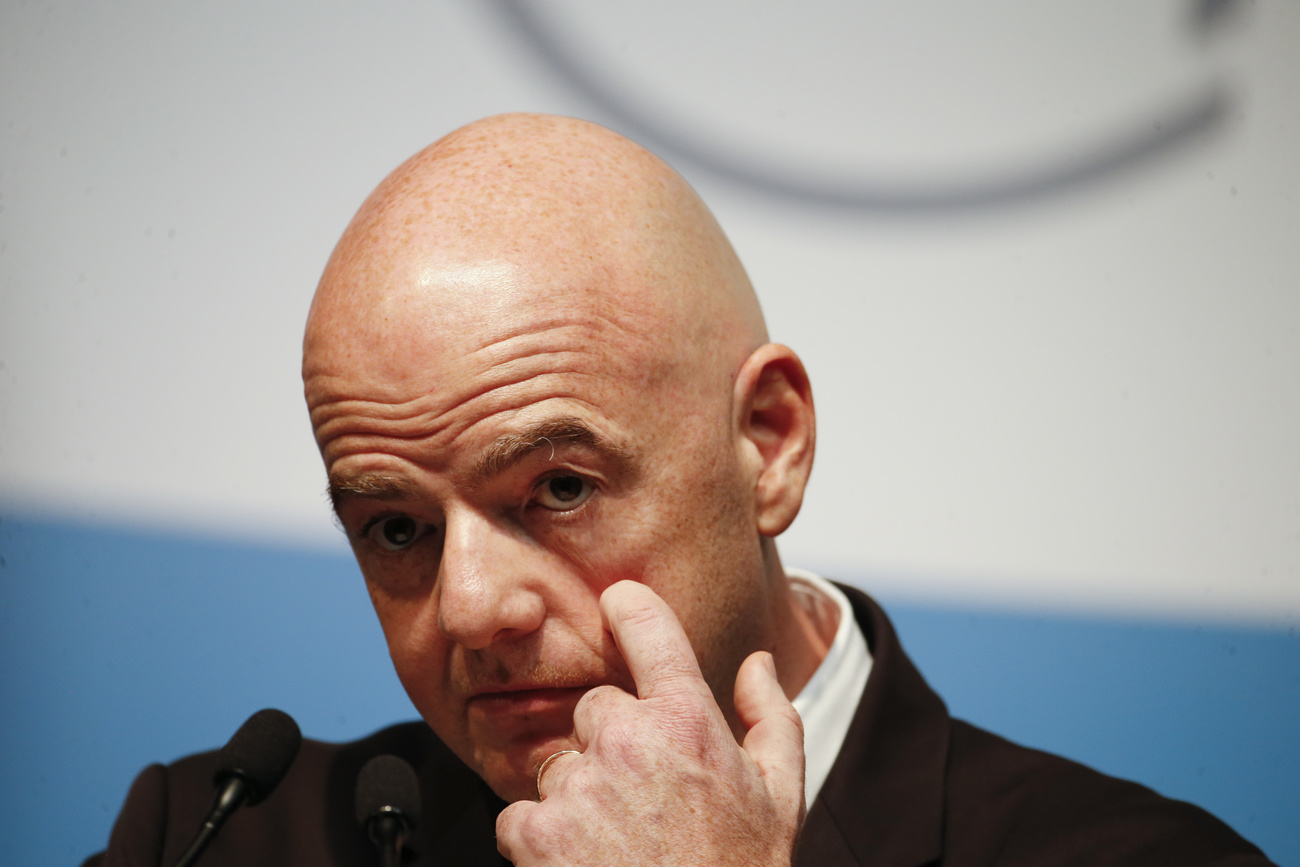
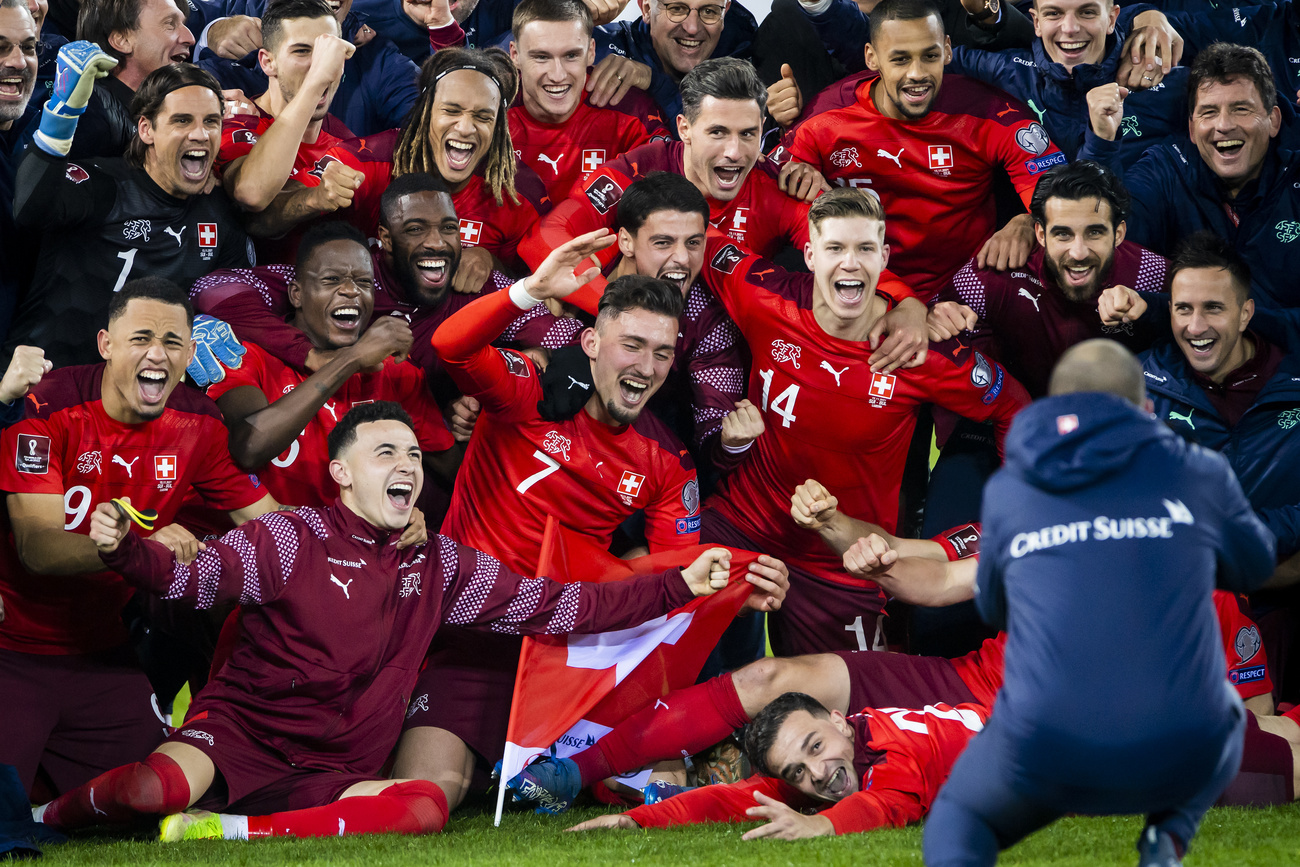
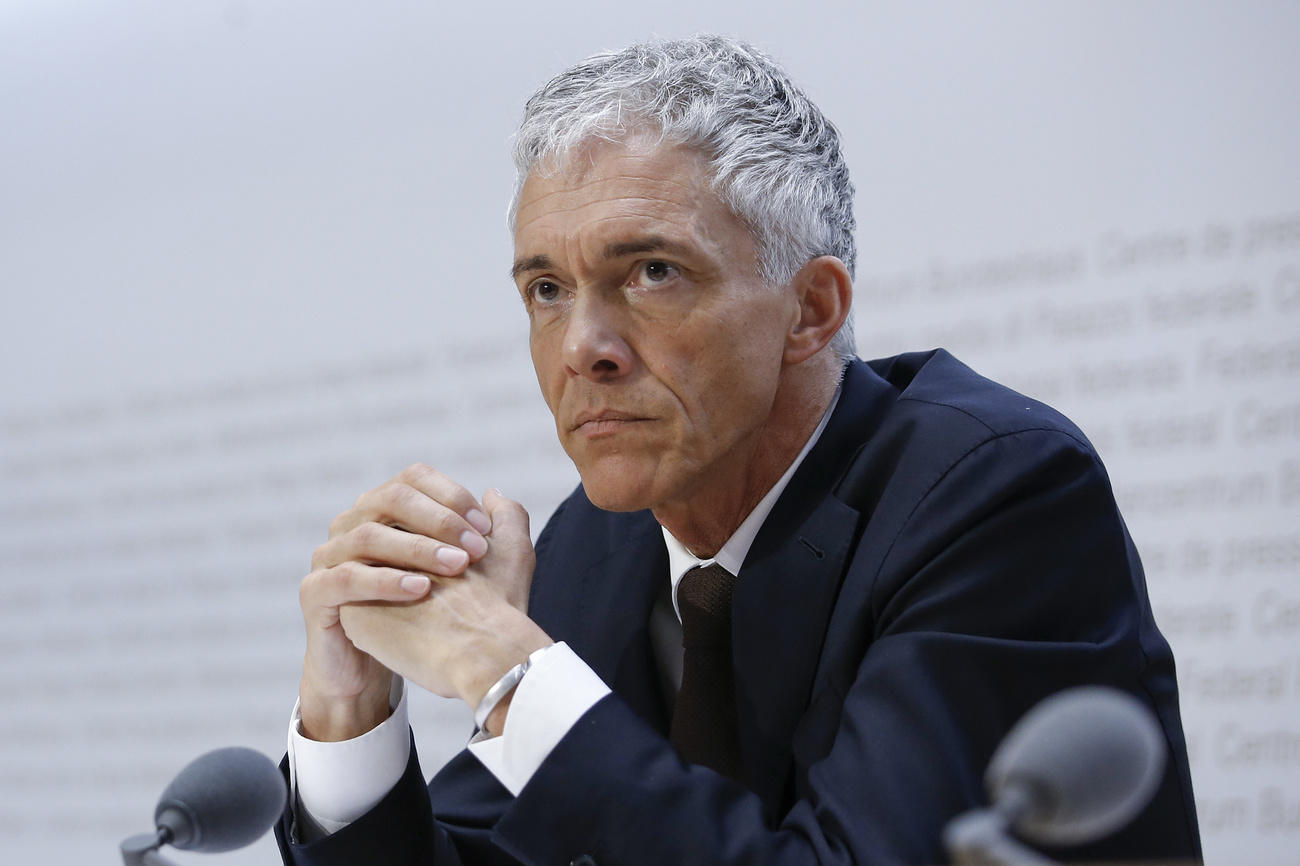
You can find an overview of ongoing debates with our journalists here. Please join us!
If you want to start a conversation about a topic raised in this article or want to report factual errors, email us at english@swissinfo.ch.